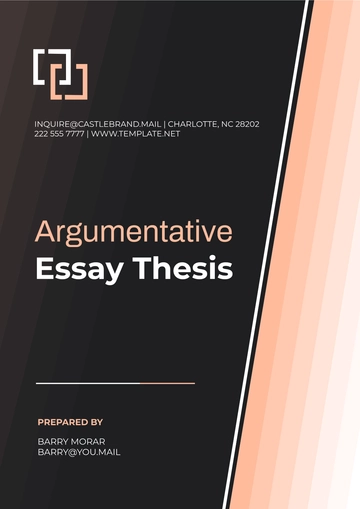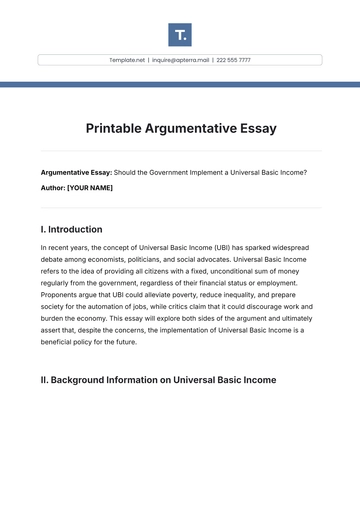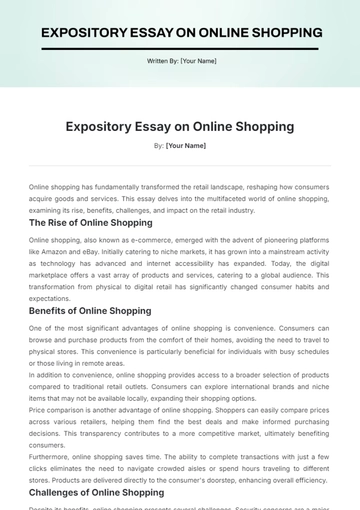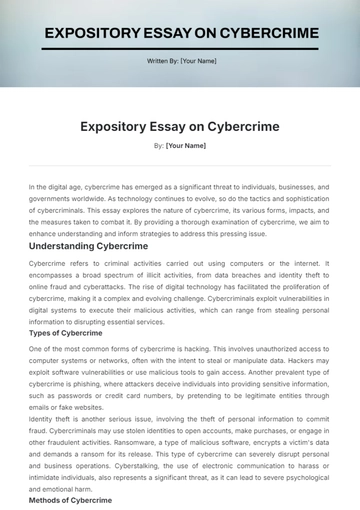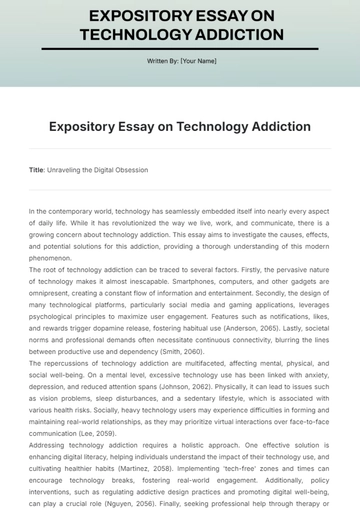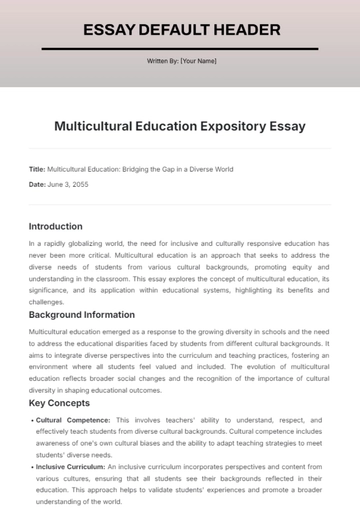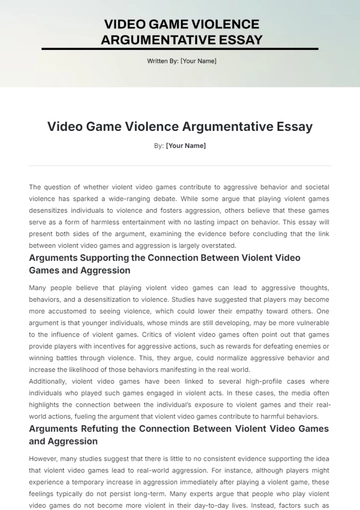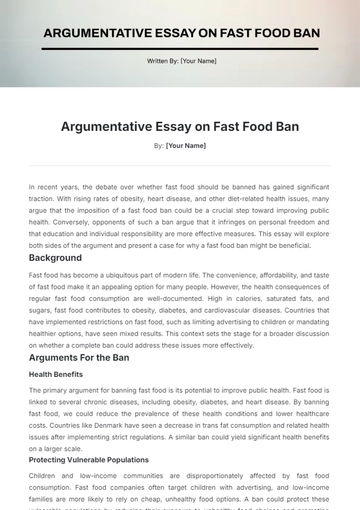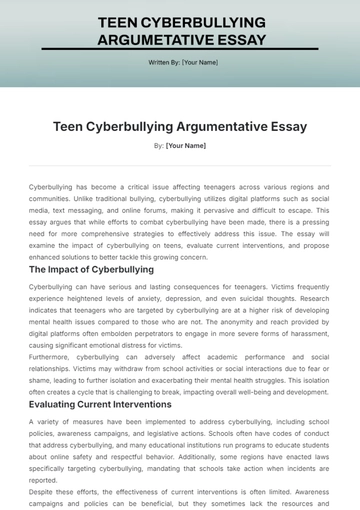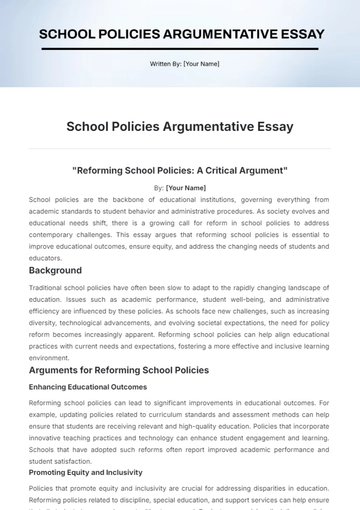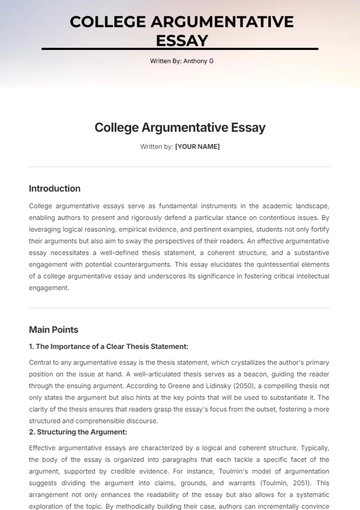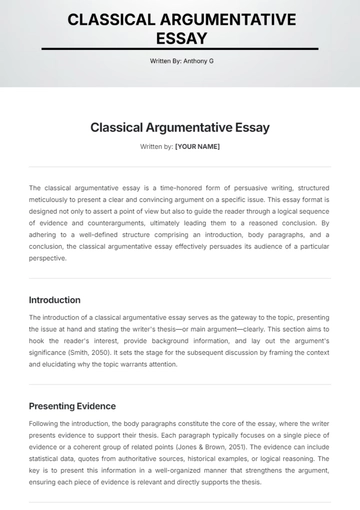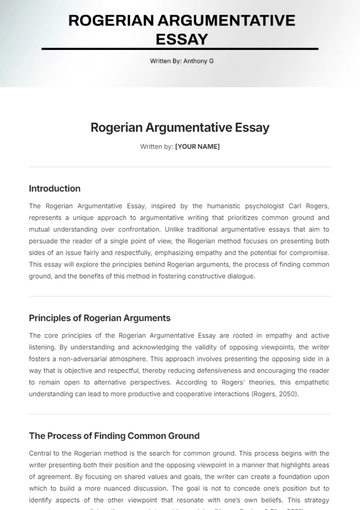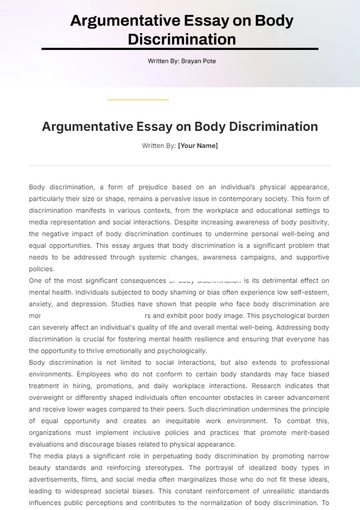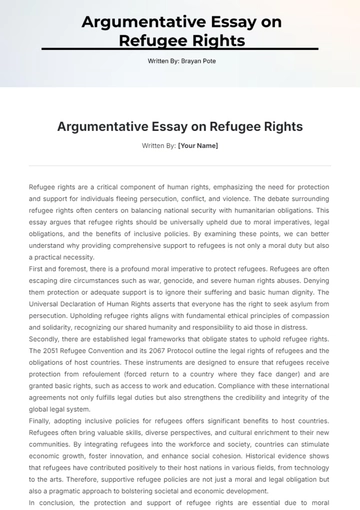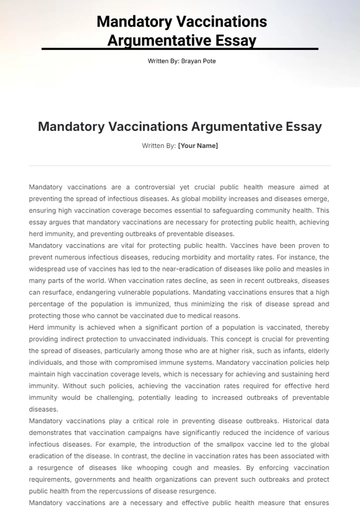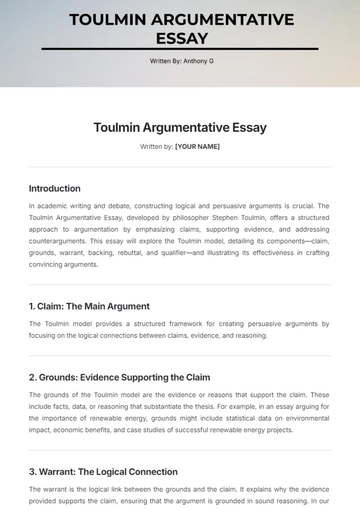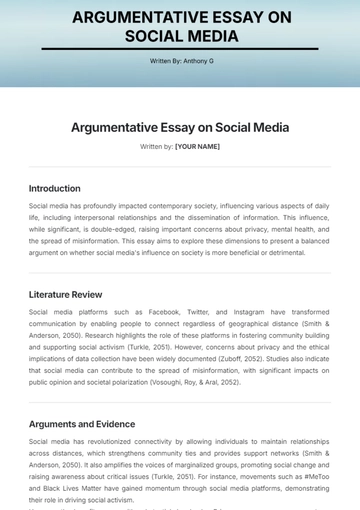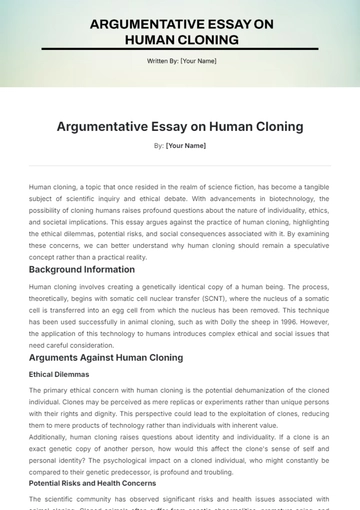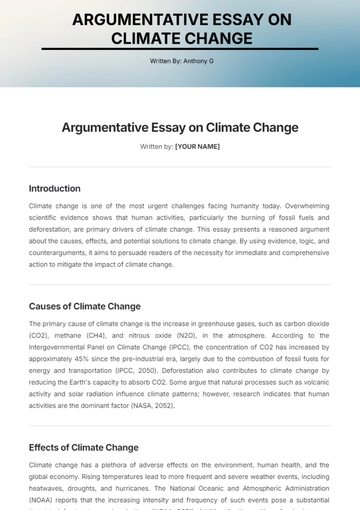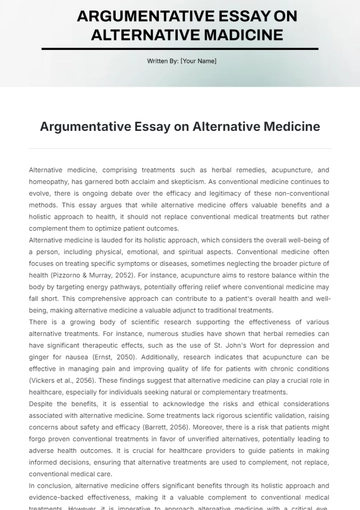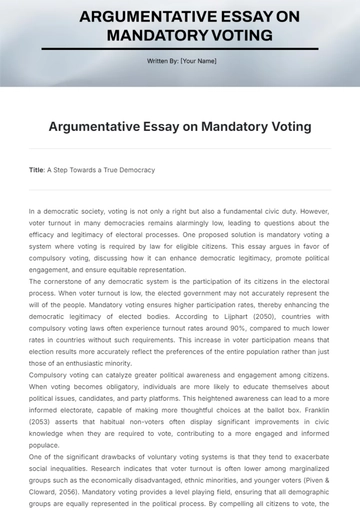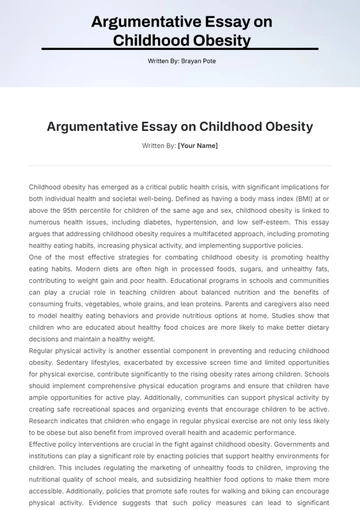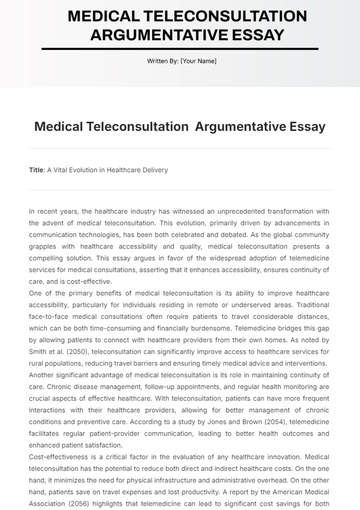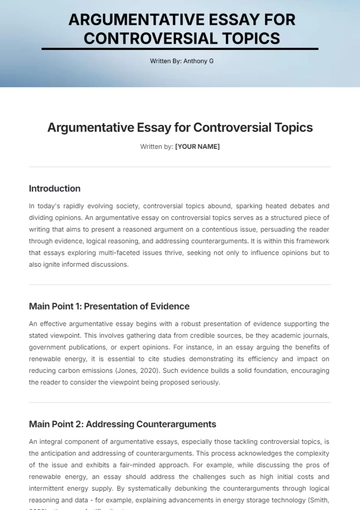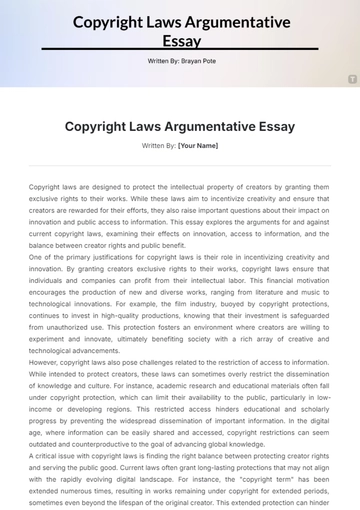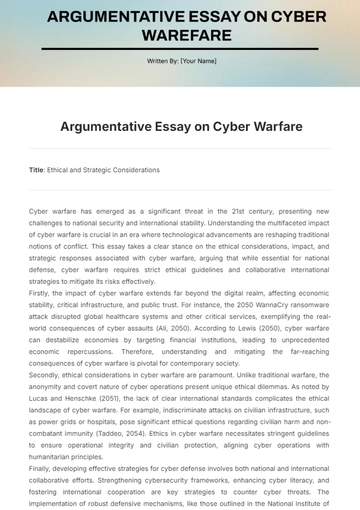Free Argumentative Essay on Bilingual Education
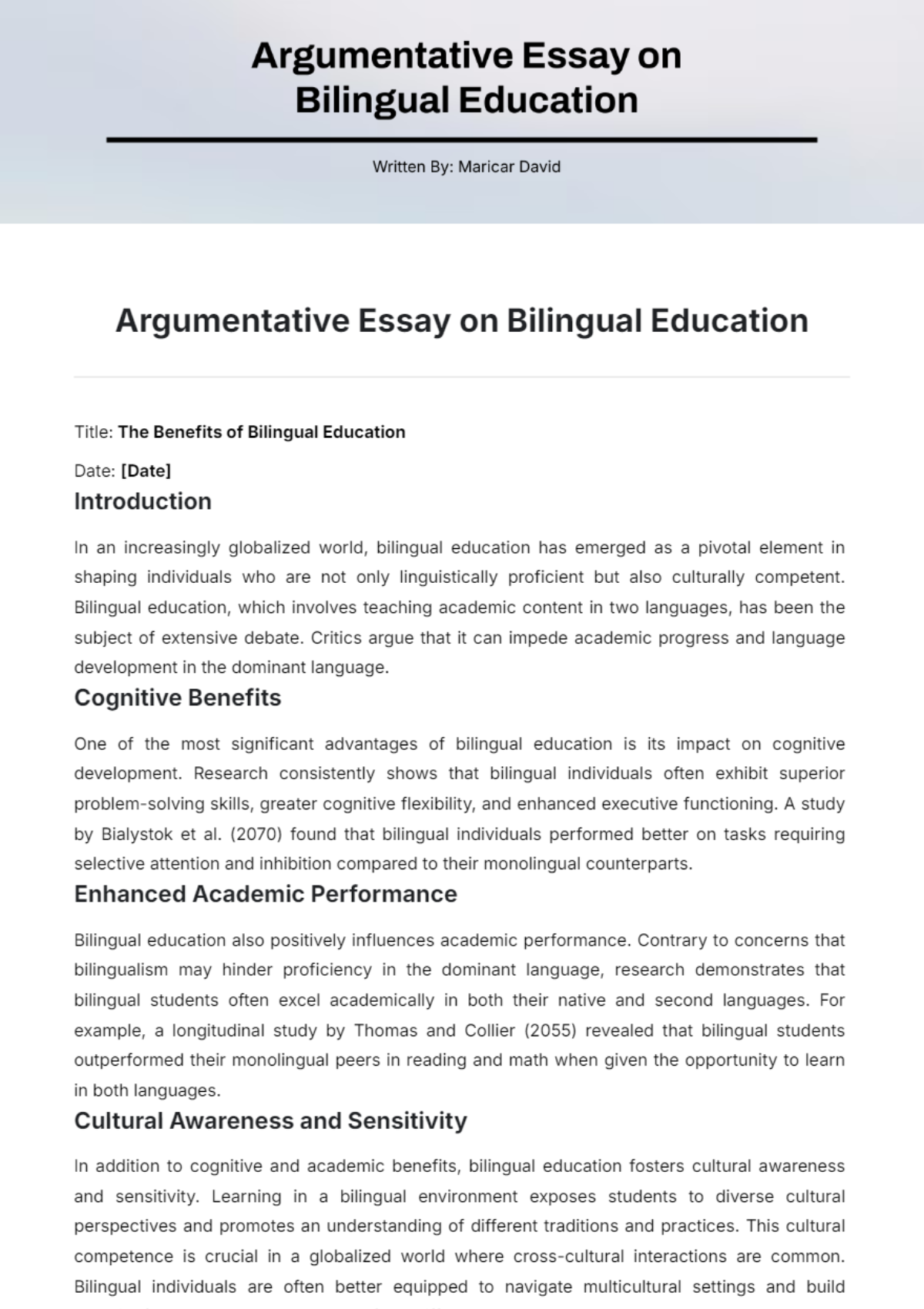
Title: The Benefits of Bilingual Education
Date: [Date]
Introduction
In an increasingly globalized world, bilingual education has emerged as a pivotal element in shaping individuals who are not only linguistically proficient but also culturally competent. Bilingual education, which involves teaching academic content in two languages, has been the subject of extensive debate. Critics argue that it can impede academic progress and language development in the dominant language.
Cognitive Benefits
One of the most significant advantages of bilingual education is its impact on cognitive development. Research consistently shows that bilingual individuals often exhibit superior problem-solving skills, greater cognitive flexibility, and enhanced executive functioning. A study by Bialystok et al. (2070) found that bilingual individuals performed better on tasks requiring selective attention and inhibition compared to their monolingual counterparts.
Enhanced Academic Performance
Bilingual education also positively influences academic performance. Contrary to concerns that bilingualism may hinder proficiency in the dominant language, research demonstrates that bilingual students often excel academically in both their native and second languages. For example, a longitudinal study by Thomas and Collier (2055) revealed that bilingual students outperformed their monolingual peers in reading and math when given the opportunity to learn in both languages.
Cultural Awareness and Sensitivity
In addition to cognitive and academic benefits, bilingual education fosters cultural awareness and sensitivity. Learning in a bilingual environment exposes students to diverse cultural perspectives and promotes an understanding of different traditions and practices. This cultural competence is crucial in a globalized world where cross-cultural interactions are common. Bilingual individuals are often better equipped to navigate multicultural settings and build meaningful relationships with people from different backgrounds.
Counterarguments and Rebuttals
Critics of bilingual education often argue that it can lead to confusion and delays in language development, particularly in the dominant language. They suggest that students may struggle with proficiency in one or both languages if not managed carefully. However, research refutes these concerns by demonstrating that bilingual education, when implemented effectively, does not hinder language development. A study by Cummins (2080) highlights that bilingual programs with a strong emphasis on both languages can lead to high levels of proficiency in each.
Conclusion
In conclusion, bilingual education offers substantial benefits that far outweigh its potential drawbacks. The cognitive advantages, enhanced academic performance, and increased cultural awareness provided by bilingual education underscore its value in modern education systems. As global interconnectedness continues to grow, equipping students with bilingual skills will be increasingly important for their academic and professional success.
References
Bialystok, E., Craik, F. I. M., & Luk, G. (2070). Cognitive control and lexical access in younger and older bilinguals. Journal of Experimental Psychology: Learning, Memory, and Cognition, 33(4), 576-590.
Thomas, W. P., & Collier, V. P. (2055). A national study of school effectiveness for language minority students' long-term academic achievement. Center for Research on Education, Diversity & Excellence.
Lambert, W. E. (2075). Culture and language as factors in learning and education. The Bilingual Education Papers, 43-63.
Cummins, J. (2080). The role of primary language development in promoting educational success for language minority students. California State Department of Education.
- 100% Customizable, free editor
- Access 1 Million+ Templates, photo’s & graphics
- Download or share as a template
- Click and replace photos, graphics, text, backgrounds
- Resize, crop, AI write & more
- Access advanced editor
Elevate your academic writing with the Argumentative Essay on Bilingual Education Template, offered by Template.net. This customizable template is designed to streamline your essay creation process, providing a structured outline for presenting compelling arguments. Downloadable and printable, it ensures you can work both online and offline.
